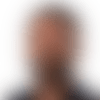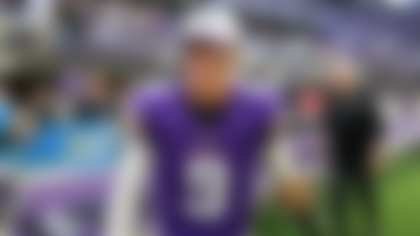The 2018 NFL season is in the books, meaning the 2019 NFL Draft is coming down the pike. But before we completely shift focus to the next crop of prospects entering the league, let's take full stock of the rookies who just finished up Year 1. In this division-by-division Rookie Grades series, we're evaluating each team's 2018 draft class and spotlighting areas to address this offseason. Jeremy Bergman examines the NFC South below.
**Round 2:** (55)
Donte Jackson, CB, 16 games/16 starts.
**Round 3:** (85)
Rashaan Gaulden, CB, 15 games/0 starts.
**Round 4:** (101)
Ian Thomas, TE, 16 games/6 starts; (136)
Marquis Haynes, LB, 4 games/0 starts.
**Round 5:** (161)
Jermaine Carter, LB, 16 games/1 start.
**Round 7:** (234)
Andre Smith, LB, 3 games/0 starts; (242)
Kendrick Norton, DT, 0 games/0 starts (waived by
Panthers in September, spent time on practice squad, then signed with
Dolphins in December).
**Notable rookie FA signings:**
Kyle Allen, QB, 2 games/1 start.
Drafted two spots away from each other by division rivals, Moore and Falcons receiver Calvin Ridley will be compared to one another forever, or at least through their rookie contracts. Whereas Ridley found the end zone plenty in his first year, Moore did so just twice -- and despite racking up more yards after the catch, Moore was outgained by the Atlanta receiver, as well (821 to 788). Yet, both Moore and Ridley shared PFWA honors as the top receivers from the 2018 rookie class. Moore and Jackson, who started every game for Carolina in 2018 and looked like DROY material for the first half, comprised one of the best tops of a draft this year. The same cannot be said for much of the rest of the haul. Thomas proved useful after Greg Olsen was lost for the season in Week 13, and Allen's standout performance in New Orleans during the season finale could help earn him the backup role in 2019 -- or even the starting position, if Cam Newton's shoulder holds him back.
**Combine/free agency focus:** Well, it depends on Newton. If the
Panthers anticipate Cam's
recent shoulder surgery/procedure/thing won't heal the ailing joint ahead of training camp, then they need to go out and find a suitable backup to at least compete with Allen for the start of the season. That would likely occur in free agency.
Nick Foles and his price tag are likely off the table, but more feasible options will be out there. Carolina still needs help on the offensive line, where
Daryl Williams is an impending free agent and
Matt Kalil is set to count for a hefty $12.2 million against the cap,
according to Over the Cap. The
Panthers need to replace
esteemed veteran
Thomas Davis in the front seven, as well as the retiring duo of
Julius Peppers on the defensive line and
Ryan Kalil at center. Meanwhile, receiver
Devin Funchess and safety
Eric Reid are headed for free agency. General manager Marty Hurney's to-do list is long.
</content:power-ranking>
**Round 2:** (58)
Isaiah Oliver, CB, 14 games/2 starts.
**Round 3:** (90)
Deadrin Senat, DT, 15 games/2 starts.
**Round 4:** (126)
Ito Smith, RB, 14 games/0 starts.
**Round 6:** (194)
Russell Gage, WR, 15 games/0 starts; (200)
Foye Oluokun, LB, 16 games/7 starts.
A lost season in Atlanta saw decent returns from the draft. Paired with Julio Jones and Mohamed Sanu, Ridley had a prolific rookie year, hauling in 10 touchdowns, the most by a rookie receiver since Odell Beckham and Mike Evans each snagged 12 in 2014. That's fine company. Ridley averaged about 10 fewer snaps per game than Jones and Sanu, yet outscored both of them, earning a spot on the PFWA All-Rookie Team and likely more playing time next season. The Falcons reaped solid contributors in Oluokun, Senat, Oliver and Smith, the last of whom filled in nicely for injured RB Devonta Freeman and perhaps won a part-time gig in Atlanta's backfield next season. Ridley, Senat and Oluokun could be starters in 2019, but that depends on how the Falcons attack the market.
**Combine/free agency focus:** The
Falcons' issues on defense won't be fixed just by
firing Marquand Manuel, replacing him with Dan Quinn as defensive play-caller and getting
Keanu Neal and
Deion Jones fully healthy. Atlanta must build a better foundation on the front seven. That should start with franchise-tagging
Grady Jarrett, who is Gregg Rosenthal's
fourth-ranked free agent. The
Falcons have a limited amount of cap space (
13th-least in the league, per Over the Cap), so expect Atlanta to tap even more defensive-line help in a trench-strong draft. Both Bucky Brooks and Daniel Jeremiah
have linked Atlanta in their mock drafts to Houston's Ed Oliver at No. 14 overall. The
Falcons also have a big decision to make with running back
Tevin Coleman, who's an impending free agent but could seek starter money elsewhere in the league.
</content:power-ranking>
**Round 3:** (91)
Tre'Quan Smith, WR, 15 games/7 starts.
**Round 4:** (127)
Rick Leonard, OT, 0 games/0 starts (waived by
Saints, spent time on practice squads of
Saints,
Rams and
Cardinals, signed with
Texans in January).
**Round 5:** (164)
Natrell Jamerson, S, 0 games/0 starts (waived by
Saints, played 10 games for
Texans, 2 games with Packers; currently with Packers).
**Round 6:** (189) Kamrin Moore, CB, 0 games/0 starts (waived by
Saints, 2 games with Giants; currently with Giants); (201)
Boston Scott, RB, 0 games/0 starts (waived by
Saints, 2 games with Eagles; currently with Eagles).
**Round 7:** (245)
Will Clapp, C, 3 games/1 start.
**Notable rookie FA signings:**
Taylor Stallworth, DT, 14 games/0 starts;
Keith Kirkwood, WR, 8 games/1 start;
Dan Arnold, TE, 10 games/1 start.
The success of New Orleans' draft class was predicated on (and directly related to) that of Davenport, for whom the Saints surrendered two first-round picks, including their 30th overall selection in 2019. While the defensive lineman failed to crack the starting lineup, he racked up 4.5 sacks and 12.5 QB hits while playing 40 percent of the defensive snaps, and he made the PFWA All-Rookie Team. Smith has the potential in Year 2 to assume full-time the No. 2 receiver role the Saints desperately need someone to seize for balance. Most of the rest of New Orleans' draft spent time on other rosters in 2018, but the Saints found meaningful pickups in Stallworth, Kirkwood and Arnold, who all played roles as substitutes down the stretch.
**Combine/free agency focus:** With just one pick in the first four rounds (a second-rounder), New Orleans has little to work with in the draft. Meanwhile, the
Saints have a lot to deal with in free agency. Backup QB
Teddy Bridgewater -- a.k.a. NO's third-round pick (via last August's trade) -- is a free agent, as are running back
Mark Ingram and linebacker
Manti Te'o. If New Orleans lets Teddy test free agency to find a starting role, it will need to find yet another potential successor to
Drew Brees. With
Benjamin Watson retiring, New Orleans also needs a bona fide receiving tight end, a la
Jimmy Graham, but there are few currently available (it's just
Tyler Eifert and
Jared Cook, for now). The
Super Bowl window is still open for New Orleans as long as the 40-year-old Brees is in uniform, but with few draft picks and limited cap space, whatever moves the
Saints make this offseason have to work right away.
</content:power-ranking>
**Round 2:** (38)
Ronald Jones, RB, 9 games/0 starts; (53)
M.J. Stewart, CB, 11 games/5 starts; (63)
Carlton Davis, CB, 13 games/12 starts.
**Round 3:** (94)
Alex Cappa, OT, 6 games/0 starts.
**Round 4:** (117)
Jordan Whitehead, S, 15 games/11 starts.
**Round 5:** (144)
Justin Watson, WR, 12 games/0 starts.
**Round 6:** (202)
Jack Cichy, LB, 6 games/0 starts.
Is it a good or bad sign that three rookies started a combined 28 games in Tampa's secondary in 2018? On one hand, there's a reason the Buccaneers' defense ranked 26th in passing yards allowed per game and 31st in points allowed per game. On the other, experience! The hole-plugging Vea battled injuries and got off to a slow start, but the first-round pick came on late in the season, recording three sacks and eventually averaging around 50 snaps per game over the season's last quarter. Drafted ahead of Kerryon Johnson, Royce Freeman and UDFA Phillip Lindsay, Jones was a disappointment, struggling to see the field in a weak RB room. Davis could take over for the departing Brent Grimes next season, but the corner and Whitehead will be tested this offseason by new defensive coordinator Todd Bowles.
**Combine/free agency focus:** Where to begin? If we are to believe
the swashbucklers' new skipper, Bruce Arians, then
Jameis Winston is Tampa Bay's QB for at least 2019, meaning the Bucs can't relieve their ultra-tight cap situation of his $21 million burden. Some targets for release reside along the remade front seven from last season:
Jason Pierre-Paul,
Vinny Curry and even
Gerald McCoy. Any of their releases would count nothing against Tampa Bay's cap in 2019, but would Arians dare part with more than one of them?
Kwon Alexander is an impending free agent, as are Tampa Bay's two leading rushers,
Peyton Barber and
Jacquizz Rodgers. Then there's
DeSean Jackson, who, set to count for $10 million against the cap in 2019, looks to be the odd receiver out if he doesn't take a pay cut. With the fifth overall pick, Tampa Bay can go offensive line or edge rusher or running back or linebacker, and it would do. Have fun, Jason Licht.
</content:power-ranking>
Follow Jeremy Bergman on Twitter @JABergman.












